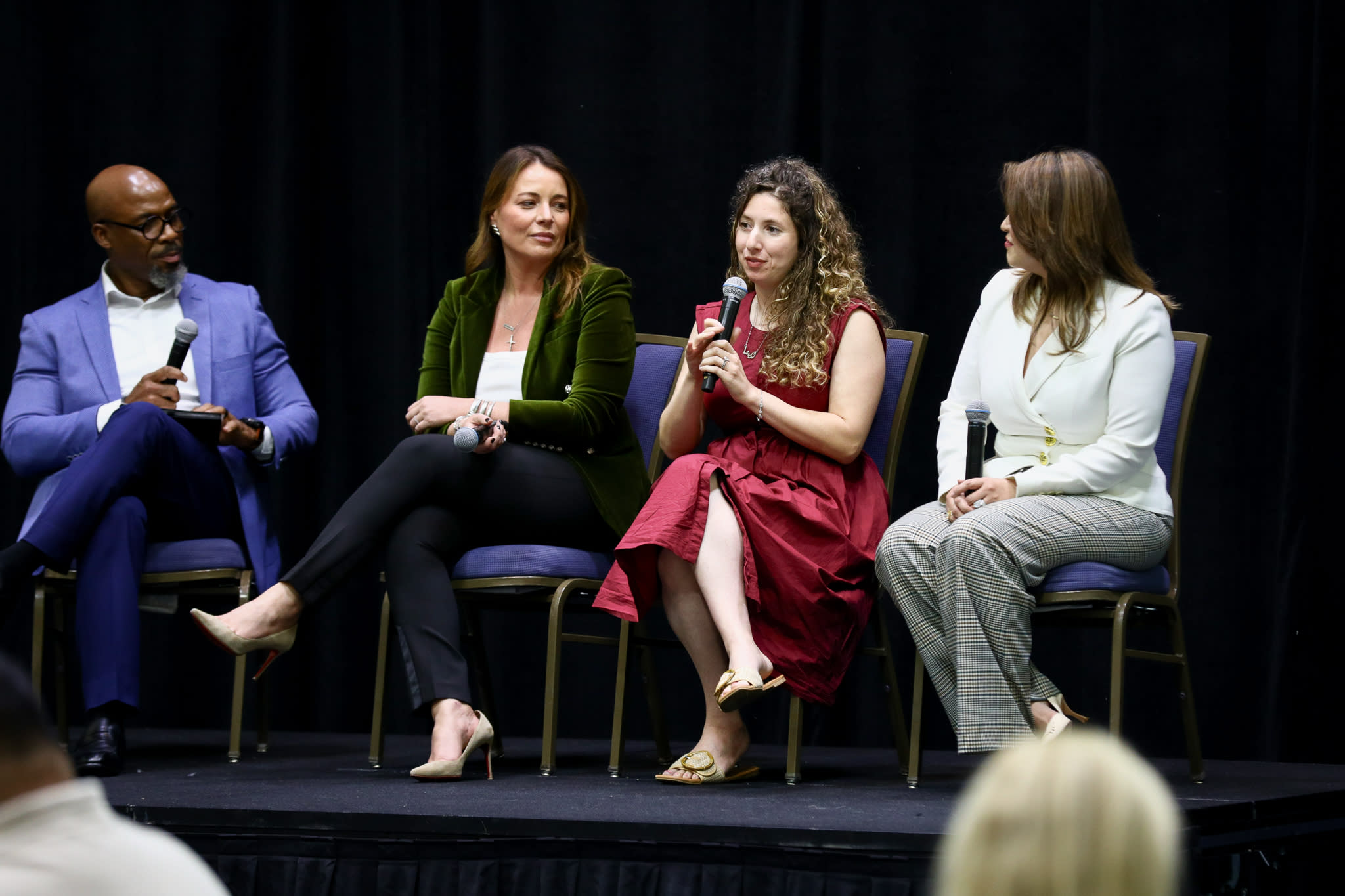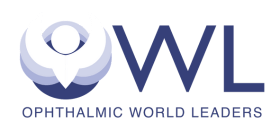Ophthalmic World Leaders

From Clinic to C-Suite: How Top Clinicians Are Redefining Leadership and Patient Impact
Panelists from the 2025 Leadership Summit reveal the pivotal moments and essential skills that paved their way to executive eyecare roles.
Moving from a busy clinic into corporate leadership might seem like a huge leap. Fortunately, the truth is that the valuable skills and commitment to patient care you developed in the clinic are exactly what bridge that gap.
That was the central theme of the first Work Session at the OWL Leadership Summit, "Industry/Physicians: From Clinic to C-Suite Leadership".
Moderator Kevin Douglas, MD, Medical Director at AbbVie, guided a discussion with an impressive panel: Eris Jordan, OD, Chief Development Officer at Aurion Biotech; Cherie Fathy, MD, Director of Clinical Research at Alnylam Pharmaceuticals; and Elizabeth Yeu, MD, Chief Medical Officer at Tarsus Pharmaceuticals. They shared their candid journeys and offered key insights for rising leaders in eyecare.
Building Essential Leadership Skills
The panelists agreed that transitioning from the clinic's hierarchical, one-decision-maker structure requires a significant shift in mindset.
Embrace Humility and Listen: Dr. Jordan noted that leaders must allow themselves to become a student again, choosing "humility every day" and allowing others to teach them. This means listening to many voices, rather than feeling the need to be the sole decision-maker or subject matter expert (SME).
Leverage Institutional Knowledge: As Dr. Fathy emphasized, the clinician's core skillset of learning on the go ("see one, do one, teach one") is highly transferable to industry. New professionals must actively seek out "incredible institutional knowledge" from long-term colleagues. This means setting up meetings with people who have been at the company for years to more quickly adapt to the new culture and understand how decisions are truly made.
Overcoming Barriers and Being Authentic
The panel candidly discussed the unique hurdles faced by underrepresented leaders, including internal and external biases.
The Power of Community: Dr. Jordan, who experienced bias as a woman and an OD in a new space, stressed that these hurdles should not be limiting. Instead, she urged leaders to "anchor on community" and surround themselves with support.
Acknowledge Systemic Challenges: Dr. Fathy introduced the often unspoken barrier of systemic bias regarding work-life balance. She noted the mental logistics of coordinating childcare that push many women and men out of professional careers, urging the community to advocate for better systemic support in professional roles.
Hold the Door Open: The most powerful takeaway for inclusive leadership was the call to actively lift others. Dr. Yeu makes a commitment not to say no when mentees ask for time or guidance. Dr. Jordan shared this sentiment, asking leaders to "have the bravery to allow somebody else to steal what you perceive to be your spotlight".
Translating these insights on community and courage into sustainable habits is key to growth.
Here is a concrete plan to put these lessons into action next week:
Define Your Purpose: Ask yourself, "What do I want to do?" instead of, "What do I want to be?". Dr. Jordan shared that defining her purpose to "serve" gave her leadership journey clarity.
Schedule an End Date for Being Stuck: If you feel stuck in your role, Dr. Yeu suggests giving yourself a concrete timeline to actively assess your options and determine a new pathway. Time will pass, and you don't want to be in the same situation years later.
Book an Institutional Knowledge Interview: Follow Dr. Fathy's lead and schedule 30 minutes with a colleague who has been in their role for five or more years. Focus not just on what they do, but on why they make decisions and the context you need to learn.
Step Outside Your Comfort Zone: Dr. Douglas attributes his career trajectory to taking an uncomfortable, big opportunity that forced him to grow. Identify one project or responsibility that forces you to expand your skillset next week.
The shift to industry leadership offers an unlimited horizon for contribution. It requires courage, humility, and a renewed commitment to learning, but the ultimate reward is the chance to elevate the entire eyecare field.
What is your greatest takeaway from this discussion?
